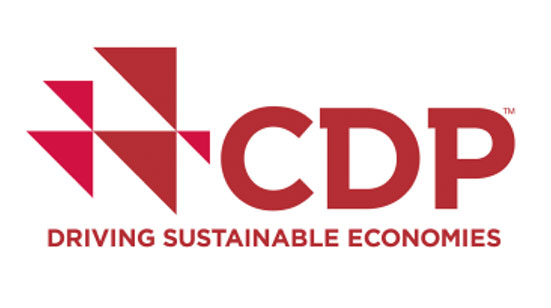The Value We Offer to Society
Contribution to the environment through corporate activities
The most-profound risk to our business continuity comes from climate change and other environmental issues. At the same time, we recognize that the range of issues that arise from environmental change also presents business opportunities for us to make a contribution. Guided by the Daifuku Environmental Vision 2020, we are contributing to creating a sustainable global environment through our business activities.
Response to risk
Rise in costs due to tighter regulations
Due to international agreements for tighter regulations, higher levels of energy efficiency are required.
At the Shiga Works, Daifuku’s core production site and a designated Type-1 Factory under Japan’s Act on the Rational Use of Energy, initiatives to conserve energy include participating in the CO2 Emissions Reduction Potential Program in 2015. In addition, installing highly efficient air-conditioning systems and LED lighting enabled us to achieve energy efficiency targets surpassing the legal requirements. We are currently reviewing our environmental targets in preparation for meeting tighter international standards while implementing energy-saving measures at all of our factories and offices.
Rise in costs due to climate impact
Below is an outline of measures to deal with supply chain interruptions and business operation shutdowns caused by increases in such events as heavy rain and snow and the damage from wind, flood and snow.
As a part of our business continuity plan, we have introduced a system to confirm the operational status of our suppliers. This system confirms disaster status and provides email reports to quickly and accurately assess and share information on the status of suppliers in the event of an emergency, with the aim of ensuring a quick recovery and return to normal operations.
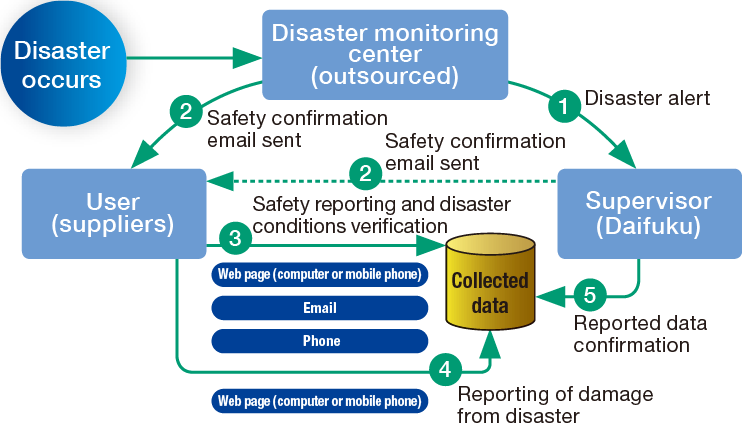
Decline in brand power due to reputational assessments
An unfavorable assessment of our response to mitigating climate change, can adversely impact on Daifuku’s stock price.
We introduced the Daifuku Eco-Management System (D-EMS) in 2017 to collect and monitor monthly environmental data from Group companies across the globe. An accurate view of the amount of energy being used and the causes of increases and decreases will enable effective action to reduce energy consumption at each site.
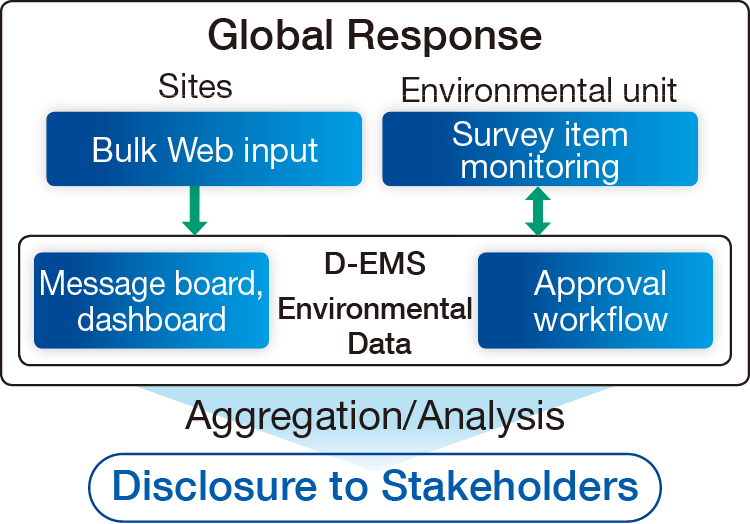
Response to Opportunity
Increase in sales due to regulation changes
Tighter energy conservation regulations on companies increase the need for our environmentally friendly products.
We launched the Daifuku Eco-Product Certification Program in 2012 to evaluate and certify the environmental performance of our products based on the Company’s in-house standards. Daifuku rates all the Group’s products, both current products and those slated for future development, based on the following criteria: energy efficiency, resource conservation and pollution prevention. Products meeting the standards are certified as Daifuku Eco-Products.
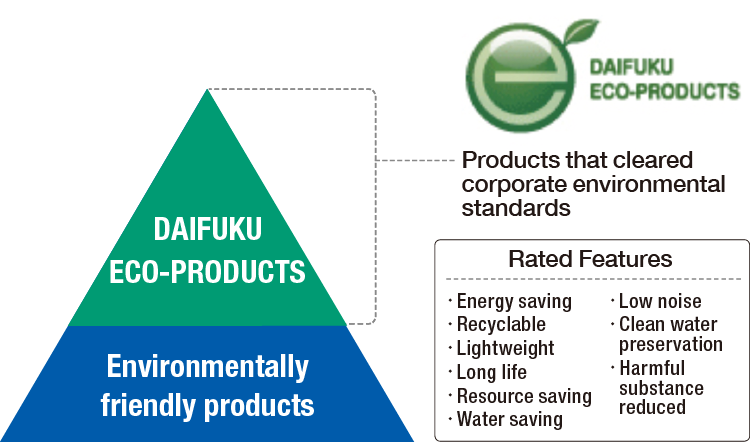
Increase in sales due to climate impact
Demand for cold chain logistics is rising due to changes to maximum and minimum temperatures.
Demand for cold chain logistics in Asia accompanying the region’s economic growth presents business opportunities for Daifuku to supply automated refrigerated and freezer warehouses for long-term food product storage and to build higher-quality cold chain logistics systems. In addition, changing temperatures associated with climate change increases the risk of food loss and waste, which will increase market opportunities for the growth of cold chain logistics systems.
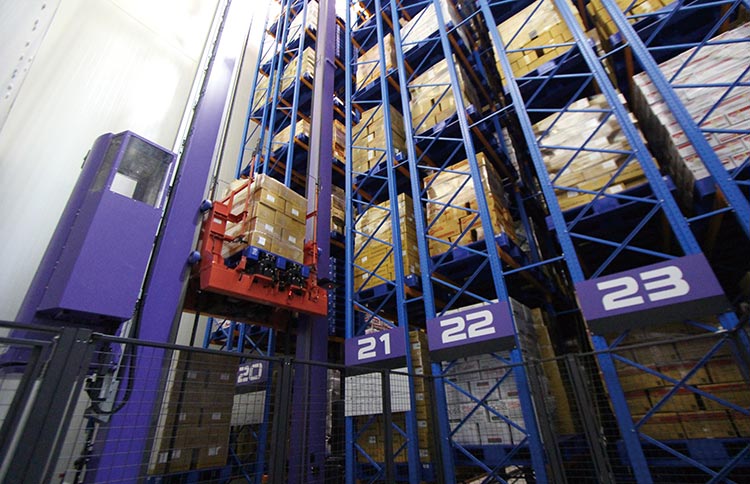
Automated freezer warehouse system delivered to a food product manufacturer in Thailand
Increase in brand power due to reputational assessments
Demand for non-financial disclosure information is rising due to the expansion in ESG investments worldwide.
Daifuku began participating in the CDP* climate change questionnaire in fiscal 2017, and the disclosure of the measures we are taking to ameliorate climate change received a rating of A-minus (Leadership). In addition, we are participating in the Ministry of the Environment committee to establish standardized environmental information disclosure. We are also working to enhance the quality of information disclosure and implementation measures through dialogue with investors.
- *CDP:
- Carbon Disclosure Project, an international not-for-profit organization working in environment fields, including climate change
